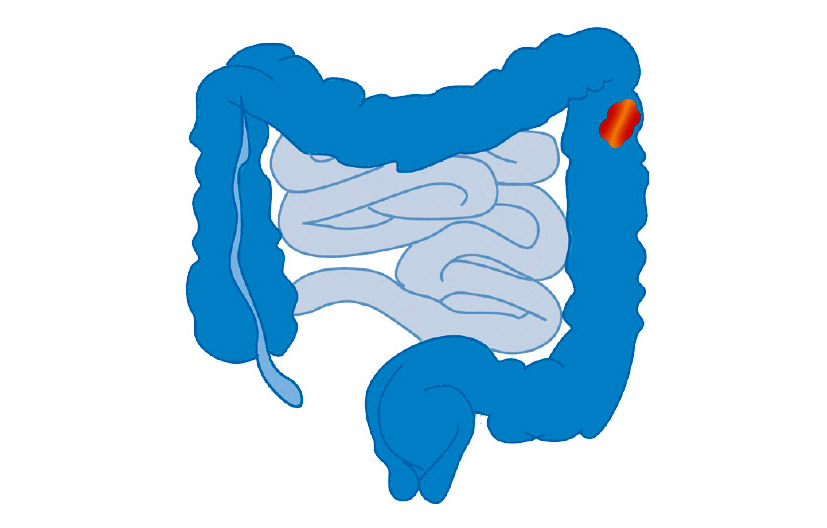22/03/2018
Print PageColon cancer awareness month March: Clinical trial on chemotherapy resistance in colon cancer enters next phase
In cases where colon cancer has spread to other parts of the body, chemotherapy is one of the main treatment options. However, the tumor often continues to grow despite chemotherapy, or starts to spread again after initially being controlled. The reasons why some colon cancer tumors become resistant to the cancer drugs used to treat them are being investigated in a DKTK-funded trial called REVEAL (REeVALuation of colorectal cancer Liver metastases), led by Volker Heinemann, Director of the Comprehensive Cancer Center at University Hospital Munich, and Reinhold Schäfer, Deputy Director of the Charité Comprehensive Cancer Center in Berlin.
The scientists have compared the genetic profile of metastases following chemotherapy with the genetic profile of the primary tumor prior to treatment, in order to track down the genetic changes that may be responsible for the renewed spread of the tumor. The aim of the trial is to include more genetic analyses in the routine diagnosis of colon cancer and to identify biomarkers that can be used to reliably assess treatment success and the risk of recurrence during treatment.
“The genetic comparison of primary tumor and metastases following the initial course of chemotherapy is a very informative approach but involves additional medical interventions,” says Julian Holch, addressing another important trial objective: as far as possible, they want to spare patients the stressful second biopsy – in this case from liver metastases – following a recurrence. Instead, the scientists intend to record genetic changes via cell-free tumor DNA found in blood samples. “Initial results have already shown that liquid biopsies can provide very reliable genetic data,” explains Julian Holch, a physician at University Hospital Munich, who is coordinating the REVEAL trial. “Another major advantage is that we may be able to spot initial signs of resistance at a very early stage.”
68 patients with colon cancer that had spread to other parts of the body had taken part in the trial by the end of 2017 – some of them at the DKTK sites in Berlin, Heidelberg, Essen/Düsseldorf and Munich. Tumor samples and liquid biopsies from the patients were subjected to molecular genetic analyses.
The scientists have discovered mutations in the tumor genes that play a role in the onset of cancer and the development of resistance in other forms of cancer. Some of the genes that promote metastasis and tumor growth were also present in large numbers. The cancer specialists suspect that replication of certain genes and the mutations that occur during treatment make the tumor cells particularly adaptable, which means they are able to develop resistance faster.
“Genome analyses have revealed that tumors of the same type of cancer can be very different genetically,” explains Julian Holch. “To classify genetic subgroups and consider them collectively, we need large numbers of patients. We achieved this during the REVEAL trial by expanding patient recruitment to other sites and established physicians within the DKTK network.”
The team of physicians and researchers intends to sequence and analyze the tumor and liquid samples in detail by the end of 2018. “We hope to identify reliable biomarkers that will enable us to counteract resistance as early as possible using the right drugs so that we can optimize individual treatment in cases of advanced colon cancer,” says Julian Holch.
